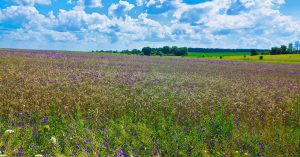 This post is the first in a series of interviews with leading online Wesleyan and/or Methodist platforms. We at BeADisciple believe in the power of the Wesleyan movement to change lives – and we recognize the importance of online presence. In fact, our entire ministry is online! Over the past several years, a plethora of Wesleyan and Methodist resources have emerged in the online faith conversation. The goal of this post series is to explore a network of helpful voices as we seek Christ together in the tradition of the Wesleys.
This post is the first in a series of interviews with leading online Wesleyan and/or Methodist platforms. We at BeADisciple believe in the power of the Wesleyan movement to change lives – and we recognize the importance of online presence. In fact, our entire ministry is online! Over the past several years, a plethora of Wesleyan and Methodist resources have emerged in the online faith conversation. The goal of this post series is to explore a network of helpful voices as we seek Christ together in the tradition of the Wesleys.
This week, we feature Andrew Dragos, Managing Editor for Seedbed – one of the fastest growing Wesleyan platforms among seminarians, pastors, and young people. Enjoy the interview!
Briefly, what are the history and mission of your platform?
Seedbed is a platform that seeks to resource individuals, communities, and movements to love the whole world with the whole gospel. It began in seed form many years ago as J. D. Walt, then Dean of Chapel at Asbury Theological Seminary, became passionate about taking the wealth of spiritual and theological resources available at a seminary and making them accessible to people who aren’t necessarily called to attend graduate school. This meant Seedbed would target a popular audience, which requires, at the very least, stripping off the academic jargon that often gets in the way of effective partnership between the church and academy.
Finally, all the right relationships fell in place, and with what those involved perceived to be God’s blessing, Seedbed launched as a website with articles, videos, and a handful of books ready for purchase in January of 2012.
What distinguishes your platform from others?
The primary distinction is that we come from a spiritual-theological tradition that has a high view of God’s redemptive power in the lives of his people and that recognizes the work of the Holy Spirit as an essential feature of God’s saving work, both as one who sanctifies and empowers for ministry.
The gospel is often mistakenly reduced to a prayer of repentance, where someone spends their afterlife, or equated with something like “justification by grace through faith.” While all of these are important aspects of God’s work, Seedbed exists to tell the other half of the story, “the rest of the gospel,” as J. D. likes to say. We want to share that God’s purpose for his church is to flourish and be sanctified in holy love.
I have to also mention that Seedbed was fortunate enough to launch in the middle of a revolution of sorts in the publishing industry. This means that we’re especially adept to the way culture engages with media and content. We’re not a publishing house with a website, or a website with a publishing house. We’ve always aimed to do both and do both excellently, because there’s no evading what’s happening in the way people engage with content in today’s culture. When people engage with the Seedbed brand, we want them to be fully aware of the vast array of resources we produce.
Do you seek to cultivate an explicitly Wesleyan or Methodist voice online? Why or why not?
Yes! And no. We’ve found that there’s been a deep longing for distinctly Wesleyan and Methodist resources, both online and in traditional publishing. Some of our most cherished resources are ones that explicitly relate to Wesleyan thought.
At the same time, we’re also discovering that many in the church are interested in serious Bible study and spiritual formation that isn’t overtly related to a particular Christian tribe. These are the “just give me Jesus” types, or ones who identify more with their evangelical or mainline identity. Many of these people deeply resonate with the Wesleyan vision for spirituality yet don’t identify as Wesleyan (even though some of them are and just don’t know it!). Sometimes the jargon can be a put-off.
With this in mind, we do aim to cultivate the Wesleyan voice, but what’s most important is that the church would grow in holy love, and we’re honored to be a part of that, however it happens. Depending on what it is that we’re producing, we may reference Wesleyan thought, or we may not. We have plenty of explicitly Wesleyan articles , and plenty of others on biblical topics, apologetics, etc. that are broadly orthodox.
How do you identify your contributors and content topics?
Most of our contributors are leaders in the church that have gone through seminary and have somehow connected with our network along their journey. But that’s not all of them. Some are pastors, lay people, or youth leaders that have never been part of the seminary sub-culture. Sometimes we reach out to authors, other times people contact us with ideas they have. We welcome these.
All of our contributors are people who volunteer their gifts of writing, teaching, etc. because they resonate with a lavish gospel.
Do you provide content that is primarily: theological, academic, cultural, pastoral, practical, or all of the above? Do you have a niche?
We aim squarely at the church. This means most of our content is not academic, and we’re constantly learning what the church does and doesn’t have an appetite for. Some ideas we think will be home runs end up bombing, while others take us by surprise.
We create resources for leadership development, resources for leaders to be able to use in their churches, and resources that lay people can access without a middle person. This means our content is pretty diverse. You’ll find tips on helping children dealing with grief , explorations on the end times, and song sets for worship leaders.
What have you learned about your readers since developing your platform? What have you learned about the Methodist or Wesleyan movement?
We’ve learned that we have to focus on what matters, because our voice is only one among very many out there vying for people’s attention. This is the tension between trying to be all to all people versus focusing on our strength—cultivating a calling to grow in holy love. So we’re constantly pushing ourselves to relate everything we do to helping God’s people become who he wants them to be.
Regarding Wesleyans, we’ve learned that they’re hungry and ready to make a move. This appetite and readiness to lead God’s people faithfully is already being practiced across America and the world, and we’re trying to give voice to this tribe by connecting them together and offering them a platform from which to speak. One special way we did that is through New Room Conference, which gathered in 2014 for the first time and whose feedback has blown us away.
What are your hopes for the future of your platform?
As our tag line says, we’re sowing for a great awakening! We’re committed to seeing God’s powerful gospel be realized in his church.
We want to widen our reach into the church through Bible study curriculum, various leadership collectives like Youth Ministry, Campus Ministry, Soul Care, and Church Planting. We’re grateful for the opportunity to gather this tribe together and speak an optimistic word of grace into the world. We can only hope that we continue to earn and build on people’s trust, and the church would continue to share our resources.
Like what you read? Check out Seedbed’s interview with our Director of Social Media Communications.
 Andrew Dragos is an ethnic Romanian-Canadian-American. He serves as Managing Editor for online content at Seedbed. After several years in youth ministry, he moved to Wilmore, KY where his interest in developing theological resources has blossomed. He also dreams of one day owning a cafe-restaurant and enjoys art and design. Drop him a line at feed@seedbed.com. He blogs regularly here. Follow him on Twitter @andyandbeyond.
Andrew Dragos is an ethnic Romanian-Canadian-American. He serves as Managing Editor for online content at Seedbed. After several years in youth ministry, he moved to Wilmore, KY where his interest in developing theological resources has blossomed. He also dreams of one day owning a cafe-restaurant and enjoys art and design. Drop him a line at feed@seedbed.com. He blogs regularly here. Follow him on Twitter @andyandbeyond.
Post photo credit: Valerii Tkachenko






